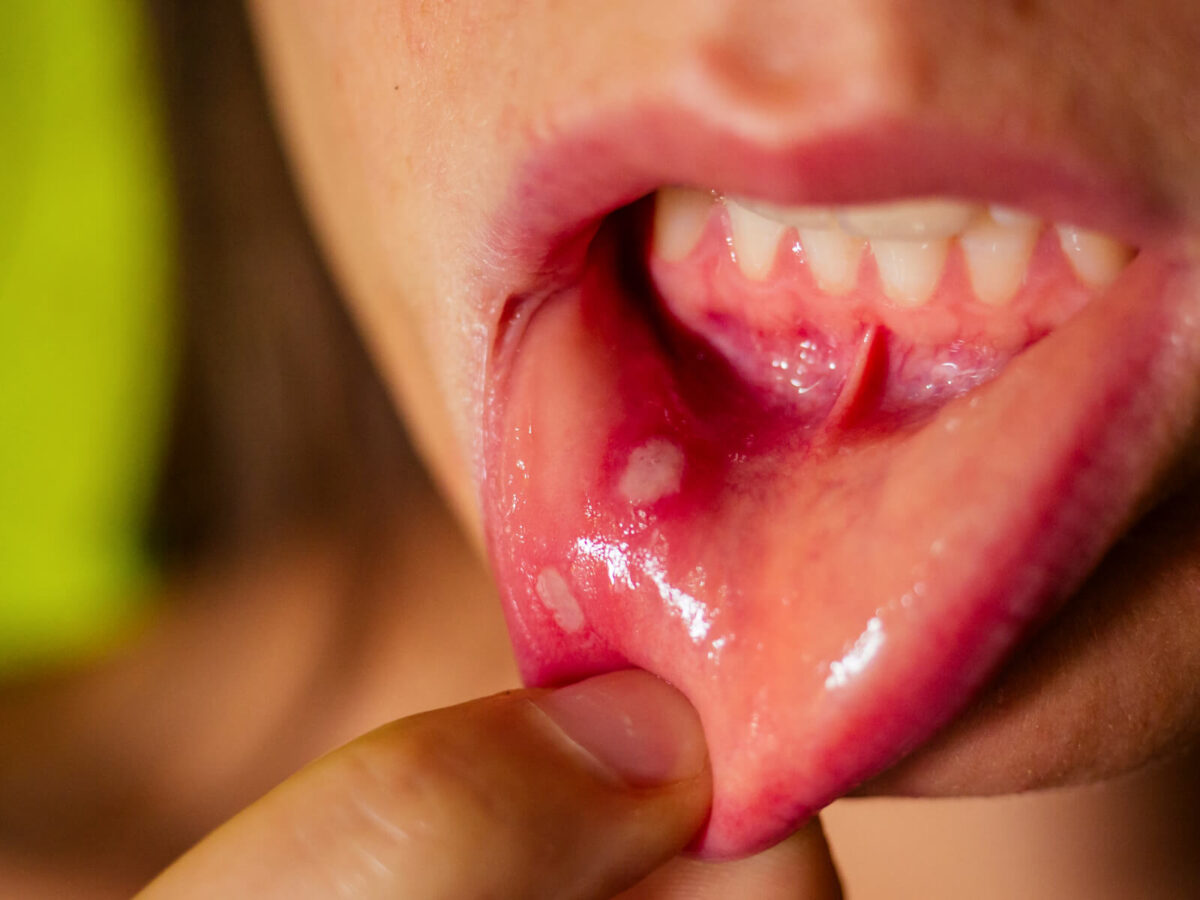Blog
Dental hygiene tips for healthy teeth & gums

What Causes Mouth Ulcers And How Can I Prevent Them?
A mouth ulcer is a small sore that can form on the gums, lips, tongue, inner cheeks, or roof of the mouth. They can be caused by a variety of things, such as minor injuries, hormonal changes, and emotional stress. These sores are usually harmless, but the pain can sometimes become unmanageable.
Many mouth ulcers go away themselves, but others may require treatment. With timely precautions, they are easily manageable. In this blog, you will understand the causes of mouth ulcers and how to prevent them.
What are Mouth Ulcers?
A mouth ulcer is a redness or soreness that appears anywhere inside your mouth. These sores can appear in red, yellow, or white. People usually get ulcers on the gums, tongue, roof of the mouth, inner cheeks, or inner lips. These sores are pretty painful and make everyday activities like eating and drinking a nightmare.
Other than pain, they are harmless and do not cause other problems. However, if a mouth ulcer keeps on appearing for a longer time, it might be due to underlying conditions. These conditions might include autoimmune or gastrointestinal issues.
Causes of Mouth Ulcers
There is no definite set of rules to avoid mouth ulcers. However, certain risk factors contribute to their occurrence. Most females experience ulcers during their menstruation cycle or pregnancies due to hormonal imbalances. The risk factors that can trigger mouth ulcers are:
- An accidental bite or dental work-related mouth injury, a complex brushing injury, a sports injury, or a harsh brushing injury
- Dental braces
- Salicylate-containing toothpaste or mouthwashes
- A reaction to oral bacteria that causes an allergic reaction
- A bacterial, viral, or fungal infection of the mouth, including hand, foot, and mouth disease
- Fruits and beverages with acids, such as strawberries, citrus fruits, pineapple, chocolate, and coffee, can cause acid sensitivity.
- Some nutrient deficiencies, such as vitamin B9 (folate), vitamin B12, zinc, and iron
- Menstruation or pregnancy can cause hormonal changes.
- Experiencing emotional distress
- Lack of sleep
- Symptoms Of Mouth Ulcers
The symptoms of mouth ulcers are usually obvious. These sores typically appear on your gums, tongue, cheeks, lips, or roof of your mouth. A mouth sore symptoms usually looks like this:
- The edges are red.
- In the center, it may be white, yellow, or gray.
- There is swelling around the ulcers.
- Brushing your teeth causes increased soreness.
- Slightly sour, spicy, or salty foods worsen the pain.
How to Prevent Mouth Ulcers
Mouth ulcers are preventable if you take the following steps:
- Consume foods that do not irritate your mouth. Anything spicy, nuts, and acidic fruits fall under this category. Rather than choosing sour fruits and vegetables, choose whole grains.
- Make sure you eat a healthy diet and take a multivitamin daily.
- To prevent accidental bites, don’t talk while chewing.
- Take control of your stress.
- Brush after meals and floss daily to maintain good oral hygiene.
- Use soft-bristled toothbrushes and mouthwashes without sodium lauryl sulfate (SLS) or alcohol.
- If the dental or orthodontic devices in your mouth are sharp, ask your dentist for wax to cover them.
- Make sure you get enough sleep and rest.
Final Overview
Mouth ulcers are common, especially among teenagers and women who have hormonal imbalances. These make eating, drinking, and speaking ordinarily tricky. But usually, they can go away within a week or two by themselves.
You can visit your dentist for pain relief medications or if the ulcer is present longer than two weeks. With a better understanding of the causes of mouth ulcers, these sores are manageable. These mouth ulcers can be reduced significantly with the right treatment plan and a good lifestyle.
